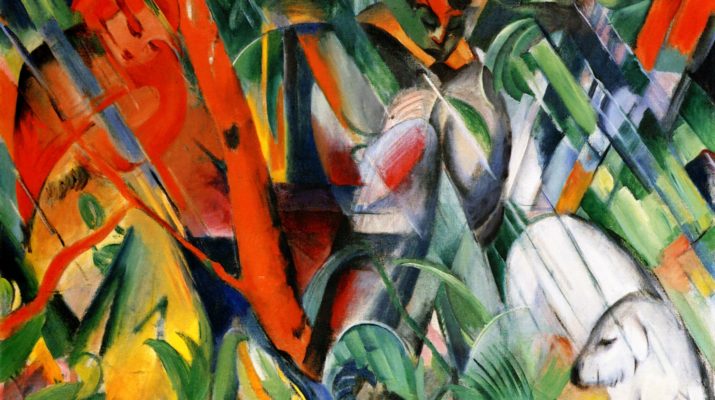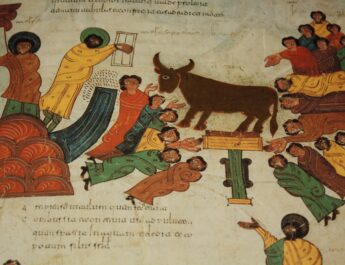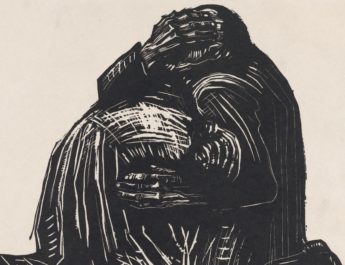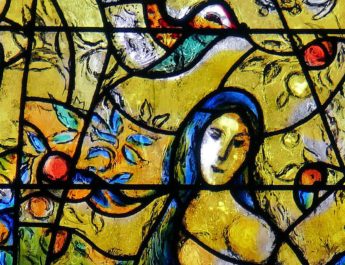Jeremiah 14:7-10, 19-22
Ordinary C48
7 Although our iniquitiesA testifyB against us,
act,C O Lord,D for your name’sE sake;
A “iniquities” = avon. Perhaps related to avah (to bend, twist, be amiss). This is sin, mischief, guilt, fault, punishment for iniquity, or moral evil.
B “testify” = anah. This is answer, respond, announce, sing, shout, or testify. It means to pay attention, which implies responding and, by extension, starting to talk. Used in a specific sense for singing, shouting, testifying, etc.
C “act” = asah. This is to make, do, act, appoint, become in many senses.
D “Lord” = YHVH. From havah (to be, become) or hayah (to come to pass, become, be). This is the name of the God of Israel, the self-existent and eternal one, the tetragrammaton. This pronunciation has been lost to time so “Lord” is generally used in its place.
E “name’s” = shem. May be from sum (to put, place, set). This is name, fame, renown. A name was thought to indicate something essential about a person – something about their individuality. So, this word can also mean honor, authority, or character.
our rebellionsF indeed are many,G
and we have sinnedH against you.
F “rebellions” = meshubah. 12x in OT. From shub (to turn back, return, turn away – literally or figuratively; not necessarily implying going back to where you started from). This is a turning back – waywardness, apostasy, faithlessness, backsliding, disloyalty.
G “are many” = rabab. 13x in OT. This is to increase, multiply, abound.
H “sinned” = chata. This is properly to miss, and so figuratively it is used for sinning, bearing the blame. It implies a forfeiture or loss of something.
8 O hopeI of Israel,J
its saviorK in timeL of trouble,M
I “hope” = miqveh. 12x in OT. From qavah (to bind or gather together, especially in the sense of twisting together – collect; figuratively, to wait, await, expect, or tarry). This is something collected together, i.e. a pond or pool, a group of people or caravan, a drove. It can also be something that is awaited or hoped for.
J “Israel” = Yisrael. From sarah (to persist, exert oneself, contend, persevere, wrestle, prevail) + el (God or god). This is Israel, meaning God strives or one who strives with God; new name for Jacob and for his offspring. This refers to the people and to the land.
K “savior” = yasha. To deliver, defend, help, preserve, rescue, be safe. Properly, to be open, wide or free, which implies being safe. Used causatively, it means to free.
L “time” = et. Related to “testify” in v7. Probably from anah (see note B above); from ad (forever, all, old); from adah (to pass on, advance, decorate oneself). This is a period or season. It can also mean whenever or continually.
M “trouble” = tsarah. From tsar (properly, a narrow or constricted place; figuratively, trouble, a pebble, an enemy, anguish, or distress); from tsarar (to bind, restrict, narrow, be cramped, an adversary). This is tightness, distress, affliction, trouble, or adversary.
why should you beN like a strangerO in the land,P
like a travelerQ turning asideR for the night?S
N “be” = hayah. Related to “Lord” in v7. See note D above.
O “stranger” = ger. From gur (to abide or sojourn; to leave the road to lodge or for any other reason). This is sojourner, guest, stranger, foreigner.
P “land” = erets. Root may mean to be firm. This is earth, ground, field land, or country.
Q “traveler” = arach. 5x in OT. This is to travel, go, a wayfarer.
R “turning aside” = natah. This is to stretch or spread out, to extend, or bend. In can also imply moral deflection.
S “night” = lun. This is to stop – usually to lodge for the night. It can imply dwelling, enduring, or staying permanently. Figuratively, it can mean being obstinate, particularly with one’s words – to complain.
9 Why should you be like someoneT confused,U
like a mighty warriorV who cannotW give help?X
T “someone” = ish. Perhaps from enosh (human, humankind, mortal); from anash (to be weak, sick, or frail). This is man, husband, another, or humankind.
U “confused” = daham. 1x in OT. This is to astonish, confuse, dismay.
V “mighty warrior” = gibbor. From gabar (to be strong or mighty; to prevail or be insolent). This is strong, mighty, or powerful. This can imply a warrior, hero, or tyrant.
W “cannot” = lo + yakol. Yakol is to be able, endure, overcome, prevail.
X “give help” = yasha. Same as “savior” in v8. See note K above.
Yet you, O Lord, are in the midstY of us,
and we are calledZ by your name;
do not forsakeAA us!
Y “midst” = qereb. Perhaps from qarab (to come near or approach). This is among, in the midst, before, the center It is the inward part, whether literal or figurative. It can also be used for the heart, the site of thoughts and feelings. This word is also used as a technical term for the entrails of the animals who are sacrificed.
Z “called” = qara. This is to call or call out – to call someone by name. Also used more broadly for calling forth.
AA “forsake” = yanach. Perhaps from the same as nuach (to rest, calm, camp, free, place, remain, satisfy, settle, station, or wait; implies settling down in a literal or figurative sense). This is to lay down, let alone, pacify, cast down, or deposit. It can also mean to allow something or someone to stay.
10 Thus says the Lord concerning this people:BB
TrulyCC they have lovedDD to wander;EE
BB “people” = am. From amam (to darken, hide, associate; creating shadows by huddling together). This is people or nation. It can be used specifically for a tribe, collectively of troops or armies, or figuratively to refer to a flock of animals.
CC “truly” = ken. Perhaps from kun (properly, in a perpendicular position; literally, to establish, fix, fasten, prepare; figuratively, it is certainty, to be firm, faithfulness, render sure or prosperous). This is to set upright. Generally used figuratively to mean thus, so, afterwards, rightly so.
DD “loved” = aheb. This is to love, beloved, friend. It is to have affection for sexually or otherwise.
EE “wander” = nua. This is to waver in a literal or figurative sense. So, it could be to tremble, quiver, totter. It could also refer to a fugitive.
they have not restrainedFF their feet;GG
therefore the Lord does not acceptHH them;
FF “restrained” = chasak. This is to restrain, refrain, or hold back. It can mean to spare, to preserve or to punish, depending on the context.
GG “feet” = regel. This is foot, endurance, or journey. It is a foot as the means of walking and so it implies a step or a greater journey. It can be used euphemistically for private parts.
HH “accept” = ratsah. This is to be pleased with, delight, take pleasure in, or accept with favor. It can mean to approve or consent regarding something. It can also be used specifically of satisfying debts or being pardoned.
now he will rememberII their iniquity
and punishJJ their sins.KK
II “remember” = zakar. This is to remember, to mark something so that it can be recalled, to be mindful of, to mention.
JJ “punish” = paqad. This is to attend to or visit – can be used for a friendly or violent encounter. So, it can be to oversee, care for, avenge, or charge.
KK “sins” = chatta’ah. Related to “sinned” in v7. From chata’ (see note H above). This is sin itself as well as punishment for sin. It is sometimes used specifically to refer to sin that is habitual.
19 Have you completely rejectedLL Judah?MM
Does your heartNN loatheOO Zion?PP
LL “completely rejected” = ma’as + ma’as. This is to reject, refuse, despise, disdain, reject, or spurn. It can also be to disappear or melt away. The word is repeated twice – the first time as an Infinitive Absolute. The Infinitive Absolute serves to emphasize the sentiment of the word. It is rather like Foghorn Leghorn’s speech pattern, “I said, I said.”
MM “Judah” = Yehudah. Probably from yadah (to throw one’s hands into the air in a gesture of praise); from yad (hand). This is Judah, meaning “praised.”
NN “heart” = nephesh. Related to naphash (to refresh or be refreshed). This is soul, self, person, emotion. It is a breathing creature. Can also refer to appetites and desires.
OO “loathe” = gaal. 10x in OT. This is to abhor, defile, or reject.
PP “Zion” = Tsiyyon. Related to tsyiyyun (signpost, monument); from tsavah (to charge someone, to command, order); from the same as tsiyyah (dryness drought); from a root meaning parched as desert, dry land. Zion can refer to a mountain in Jerusalem as well as another name for Jerusalem itself or the people.
WhyQQ have you struck us downRR
so that there is no healingSS for us?
QQ “why” = maddua. From mah (what, how long) + yada (to know, be aware, see and so understand – includes observation, care, recognition; can also be used as a euphemism). This is why or how.
RR “struck…down” = nakah. This is to hit whether lightly or severely. It can be used in a literal or figurative sense. So, this could be beat, punish, give wounds, kill, or slaughter.
SS “healing” = marpe. 16x in OT. From raphe (to heal, repair, mend, purify, healer). This is healing, health, composure, soothing, yielding, placidity.
We lookTT for peaceUU but find no good,VV
for a time of healing, but thereWW is terrorXX instead.
TT “look” = qavah. Related to “hope” in v8. See note I above.
UU “peace” = shalom. From shalam (to be complete or sound; to have safety mentally, physically, or extending to one’s estate; so, if these things are safe and complete, the implication is that one would be friendly; and, if being friendly, one would make amends and that friendship would be reciprocated). This is completeness, soundness, welfare, favor, friend, good health. It is to be safe and figuratively well, happy, at peace, friendly. Abstractly, it includes the ideas of welfare and prosperity (not in excessive wealth, but in having enough).
VV “good” = tob. From tob (to be pleasing, to be good). This is good, beautiful, pleasant, agreeable, bountiful, at ease. This word is used for goodness as a concept, a good thing, a good person. This can refer to prosperity and welfare as well as joy, kindness, sweetness, and graciousness. So, this is ethically good, but also enjoyably good.
WW “there” = hinneh. From hen (lo! Behold! If, though; an expression of surprise). This is to draw attention, show suddenness or surprise, or to emphasize the importance of the coming statement. See! Lo! Behold!
XX “terror” = beathah. 2x in OT – both in Jeremiah. From baath (to terrify, startle, overwhelm, terrorize, or fall upon). This is dismay, fear, trouble.
20 We acknowledgeYY our wickedness,ZZ O Lord,
the iniquity of our ancestors,AAA
for we have sinned against you.
21 Do not spurnBBB us, for your name’s sake;
YY “acknowledge” = yada. Related to “why” in v19. See note QQ above.
ZZ “wickedness” = resha. From rasha (to be wicked, guilty, make trouble, do wrong; can also be condemn, guilty, inflict punishment; this verb implies disturbing or violating). This is wrong, particularly moral wrong. It can be wickedness, evil, wicked deeds, or something that is ill-gotten.
AAA “ancestors” = ab. This is father, chief, or ancestor. It is father in a literal or figurative sense.
BBB “spurn” = naats. This is to spurn, reject, provoke, abhor, treat with contempt. It can also mean bloom or flourish.
do not dishonorCCC your gloriousDDD throne;EEE
remember and do not breakFFF your covenantGGG with us.
CCC “dishonor” = nabel. This is to fall away, faint, wither, languish, sink. Figuratively, it can mean being senseless, foolish, or wicked. Further, it can be to despise, disgrace, or fall to nothing, to be seen with contempt.
DDD “glorious” = kabod. From kabad (to be heavy, weighty, burdensome). This is weighty. Figuratively, glorious, abundant, riches, honor, splendor – a reference to one’s reputation or character. This word is often used to describe God and God’s presence.
EEE “throne” = kisse. From the same as kese (full moon); perhaps from kasah (to cover, conceal, overwhelm; to cover as clothes do or to hide a secret). This is throne – a seat that is covered or has a canopy. Thus, it is a seat that conveys authority.
FFF “break” = parar. This is to break, defeat, frustrate, cast off, clean, cease.
GGG “covenant” = berit. Perhaps from barah (to eat, choose, make clear); perhaps from bar (grain, wheat); from bara (to select, purify, cleanse, test, brighten, polish). This is a compact, covenant, alliance, treaty, or league.
22 Can any idolsHHH of the nationsIII bring rain,
or can the heavensJJJ giveKKK showers?LLL
HHH “idols” = hebel. This is emptiness, vapor, breath. It can refer to something that is fleeting or futile, worthless or a delusion. Something that is passing and so does not satisfy. This is related to the root for the name “Abel.”
III “nations” = goy. From the same root as gevah (the back, person, or body); related to gev (among); related to gaah (to rise up). This is nation or people. Often used to refer to Gentiles or foreign nations. It can also be used figuratively for a group of animals. This is where the Yiddish “goy” comes from.
JJJ “heavens” = shamayim. Root may mean being lofty. This is sky, the air, or heaven. It is in a dual noun form so this might refer to the part of the sky where the clouds move on the one hand and the part beyond that where the sun, moon, and stars are on the other hand.
KKK “give” = natan. This is to give, put, set, offer. It is to give literally or figuratively.
LLL “showers” = rebibim. Related to “are many” in v7. 6x in OT. From rabab (see note G above). This is showers – rainfall as comprised of many drops.
Is it not you, O Lord our God?MMM
We set our hopeNNN on you,
for it is you who doOOO allPPP this.
Image credit: “In the Rain” by Franz Marc.




